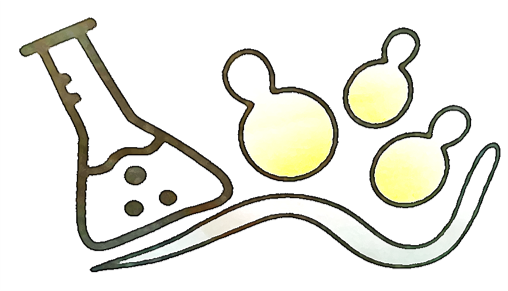 About the TOPF lab About the TOPF lab
Protein homeostasis is crucial for accurate cellular function and secures the health of an organism. Protein homeostasis is based on the well-adjusted cooperation between protein synthesis, protein folding, and protein degradation. Each of these fundamental cellular processes can be regulated at multiple steps to adjust biogenesis of proteins to the current requirements of the cell.
Maintenance of a correctly folded proteome strongly depends on the efficiency of a network of surveillance mechanisms. However, little is known about why these mechanisms fail during aging.
Utilizing yeast and the nematode Caenorhabditis elegans, the pioneering model organism in aging research, we want to identify limitations in the proteostasis network that lead to proteostasis collapse during aging. Our long-term goal is to better understand the complex crosstalk within the proteostasis network. This will allow the development of novel interventions that alter or even ameliorates health deficits during aging.
|
| We use molecular biology and biochemical approaches to study the changes in the composition of ribosomal proteins and their post-translational modifications. By unreavaling such adaptations we want to understand how cells adapt their translational output. |
We are interested in the downstream events of the translation machinery related to protein folding. We focus on the molecular co-chaperone prefoldin to understand its diverse functions in the proteostasis network. |
We use genetics and chemical screening aproaches to explore the link between protein turnover and health span in the aged organism. |